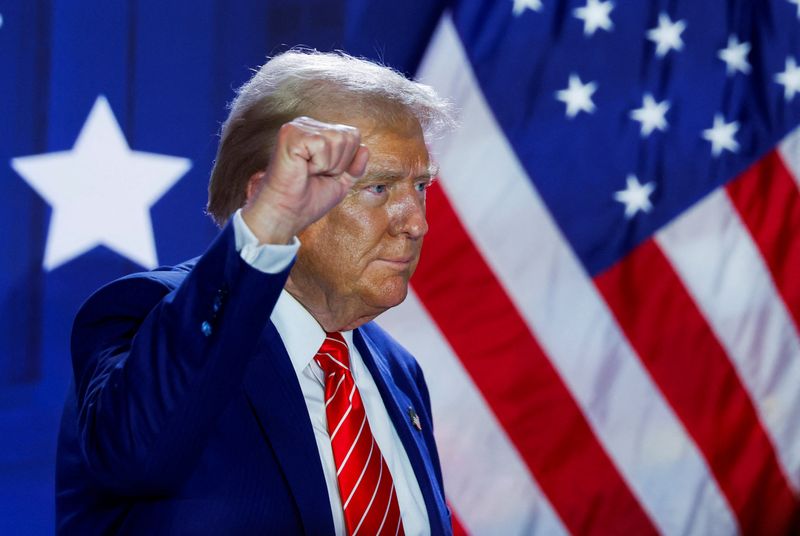TAIPEI (Reuters) – Former U.S. President Donald Trump “has a lot on his plate” and misunderstands Taiwan’s position within the semiconductor trade, probably as a result of others have misinformed him, the island’s Financial system Minister Kuo Jyh-huei stated on Monday.
Trump, the Republican nominee in November’s presidential election, unnerved democratically ruled Taiwan, which is claimed by China, by saying in July, “Taiwan should pay us for defence,” and that it had taken American semiconductor enterprise.
His remarks pummelled shares of Taiwan’s TSMC, the world’s largest contract chipmaker and a significant provider to corporations resembling Apple (NASDAQ:) and Nvidia (NASDAQ:).
Chatting with reporters in Taipei forward of this week’s Semicon Taiwan exhibition, set to be attended by prime executives from TSMC, Samsung (KS:) and SK Hynix, Kuo rejected Trump’s remarks.
“Taiwan did not steal the U.S. chip industry,” stated Kuo, beforehand a senior govt of a TSMC provider, Topco Scientific.
Taiwan helps complement the U.S. chip trade in manufacturing, and makes chips as commissioned by U.S. trade, he added.
“This is a misunderstanding on Trump’s part. The president has a lot on his plate; maybe a friend or a competitor in Taiwan told him that,” Kuo stated.
TSMC is spending billions constructing new factories abroad, together with $65 billion on three vegetation within the U.S. state of Arizona, although it says most manufacturing will keep in Taiwan.
TSMC’s Arizona factories are a vital a part of the Biden administration’s efforts to spice up the chips provide chain and guarantee america is much less reliant on chips made abroad.
In 2022, the U.S. Congress accredited the Chips and Science Act to spice up home semiconductor output with a programme of $52.7 billion in analysis and manufacturing subsidies.
Taiwan acquired robust backing from Trump’s 2017-2021 administration, together with arms gross sales, which have continued beneath the federal government of President Joe Biden.
Trump spoke to then-Taiwan President Tsai Ing-wen in 2016 shortly after he received the election, prompting anger in Beijing, as america doesn’t formally recognise Taiwan’s authorities, and glee in Taipei.

Taiwan’s authorities rejects China’s sovereignty claims.
(This story has been refiled to say ‘Republican’, not ‘Republic,’ in paragraph 2)




